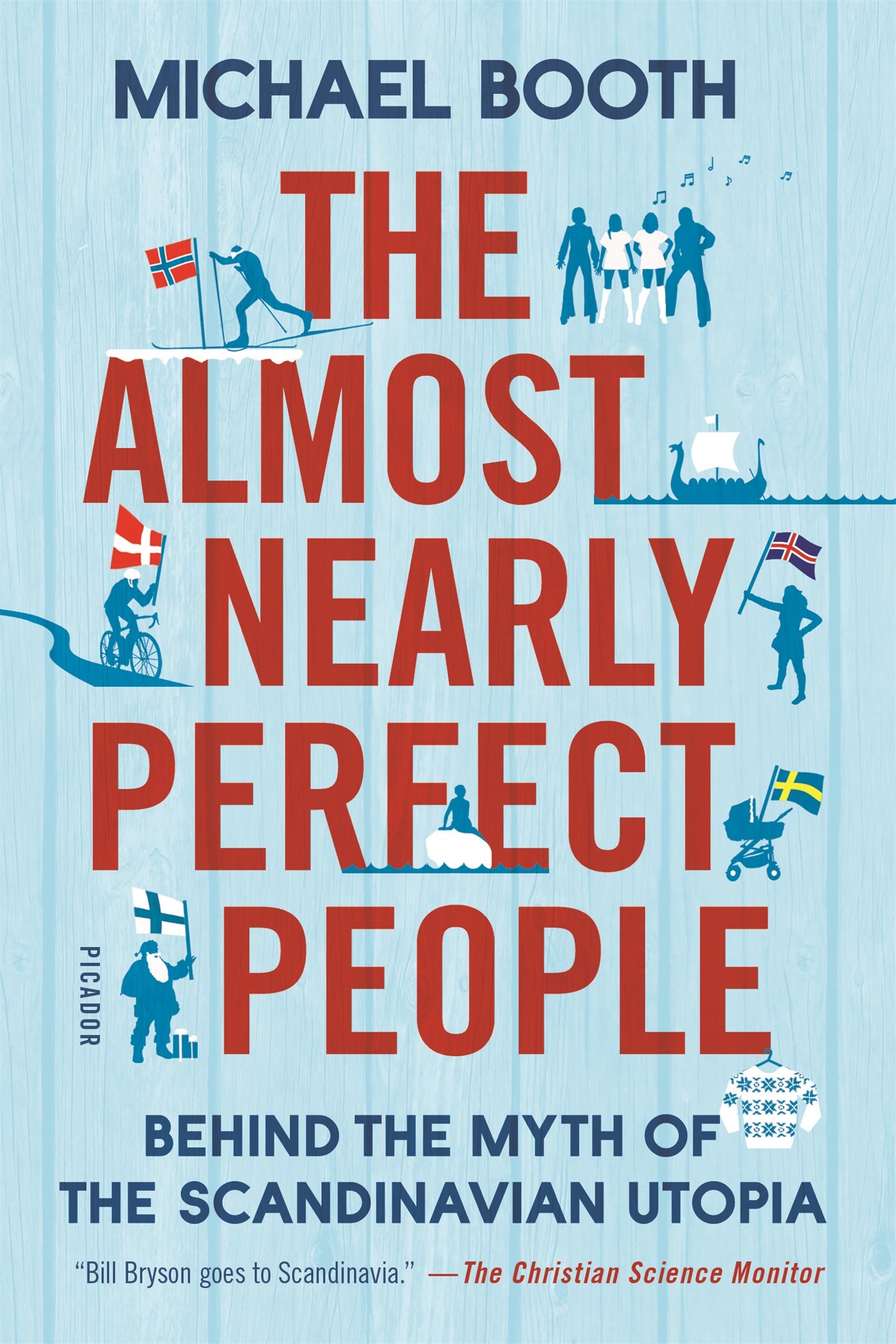

By Lance Welton
01/02/2021
The countries of the Scandinavian peninsula adopted an attitude towards Covid-19 that is so “liberal” that it has left many “liberal” commentators livid. This is especially the case with Sweden. But it seems to have worked, because of culture and — unmentionably — genetics.
In March, when many European countries imposed stringent lockdowns, Sweden stood out in doing, essentially, nothing. Images of Swedes merrily socializing in cafes were replayed across the globe [Sweden’s Coronavirus Strategy, by Emma Beswick, Euro News, October 19, 2020].

But, to a lesser extent, neighboring Norway and Finland operated liberal policies. Thus there is no lockdown in Finland, masks are voluntary, and there is no question of closing schools, though bars must shut early [Finland should test its entire population to avoid a shutdown, Helsinki Times, December 16, 2020]. In Norway, masks are mandatory but only in certain specific municipalities [Norwegian city announces face mask requirement after Covid-19 cases detected, The Local, December 16, 2020].
Why has the virus failed to take hold in Scandinavia, especially relative to other European countries?

According to the latest statistics from Statista, as of 28th December the death rate in the last 7 days from Covid was 50.7 per million in Belgium and 35 per million in the UK, both of which operate stringent lockdowns. In Sweden, however, with its liberal policies, it was 36; almost the same as the UK. In Norway, it was 6.3 and in Finland it was just 5.9.
It’s as though the Scandinavians, and especially the Norwegians and Finns, are somehow different from everybody else. What could possibly be behind all this?
The answer can ultimately be reduced down to something utterly taboo: genetic similarity.
Scandinavia has an intense culture of conformity and trust. This is a fact of life in these countries. Sweden is infamous for its “Jante Culture,” in which people are encouraged to conform, to not stand out, and to always focus on creating an equal and harmonious community. This also characterizes other Scandinavian countries, especially Finland, but also Norway. It has been explored in a recent book The Almost Nearly Perfect People: Behind the Myth of the Scandinavian Utopia, by Michael Booth.

But what Booth fails to explore is where such a culture would come from. A reasonable answer: people adapted to an extremely harsh environment, who would thus have a very small gene pool and be strongly selected to be highly cooperative because only groups like that would survive. They would be very strongly selected to their cold, dark, agricultural ecology — meaning lots of straight blonde hair and blue eyes, permitting the synthesis of sunlight into Vitamin D — because selection is so strong. This means they would be unlikely to end up Vitamin D deficient, which has turned out to be a key cause of Covid 19 complications.

In addition, the fact of being highly genetically similar itself predicts trust and cooperation as was shown in many experiments conducted by J. Philippe Rushton and his team. This has been explored in a recent book on the Finns [The Silent Rape Epidemic: How the Finns Were Groomed to Love Their Abusers, by Edward Dutton].
So you end up with peoples who are extremely trusting, including of authority, and who very much want to conform. A relatively small percentage, in places like this, will fail to cooperate or distrust or even question the government. And the small gene pool also means little in the way of social extremes; no very rich people and no very poor people.
One of the most obvious results: an obsession with cleanliness in Scandinavia that already existed well before Covid-19 reared its head. An obsession with “hygiene” is something that other Europeans in Scandinavia frequently remark upon [Scandinavian Stereotypes, by David Nikel, Life in Norway, March 7, 2018]. Scandinavian school children are constantly washing their hands and they take their shoes off in the classroom. Homes in these countries are noticeably kept extremely clean. Compared to somewhere like Belgium, Scandinavians are extreme germophobes. This also means that new health trends will sweep through the Nordic populations at breakneck speed compared to other countries.
A testimony to this if you enter many Scandinavian supermarkets at the moment, almost everybody — of all ages — will be wearing a mask, even though they don’t have to. There are polite notices at supermarket entrances asking shoppers if they could please wear masks. And, for most Scandinavians, that is more than enough to persuade them.
It may even be that Sweden’s decision initially to avoid Covid-19 restrictions, and now have only very limited restrictions, didn’t actually make that much of difference. This is evidenced by the fact that Sweden now operates similar policies to other Scandinavian countries, but has a relatively higher death rate.
A parsimonious explanation for the difference: the much higher prevalence of dark-skinned immigrants in Sweden than in Finland or Norway. Precise figures are difficult to come by, but it seems that about 7% of the Finnish population have non-Finnish-born parents, though 1% are Russian, so let us say 6% [Persons with foreign background,Stat.fi]. In Norway, it is 17% of the population, overwhelmingly non-white. [14 per cent of population are immigrants, ssb.no, March 5, 2018] In Sweden, it is as least 25% of the population [Wikipedia on Demographics of Sweden, accessed today.]. And, in the case of Sweden, these are not Russians either, but Somalis and Arabs.
So, you have at least 25% of the population who don’t conform, who likely don’t follow the hygiene rules of Swedes, and who are outliers in terms of poverty and most likely low IQ, which correlates with bad health choices according to experts — see Race Differences in Intelligence, by Richard Lynn.
You also have about a quarter of the population who are an evolutionary mismatch. Their dark skin means they cannot synthesise sunlight into Vitamin D — Somalis in Sweden require double the Vitamin D supplement that Swedes do remain healthy [Inhabitants of Swedish-Somali origin are at great risk for covid-19, by S. Bejerot, & M. Humble, British Medical Journal, 2020].
Even in Norway, foreigners are about 15% of the population but 25% of those tested positive for Covid-19. Somalis in Norway are tested positive at 7 times their population percentage and Middle Easterners are also over-represented but to a lesser extent [COVID-19 takes unequal toll on immigrants in Nordic region, by Lena Masri, Reuters, April 24, 2020].
Scandinavia has got off lightly, in terms of Covid-19, in essence, for evolutionary reasons. Its people are selected to be trusting, cooperative and genetically very similar to each other, in a culture that is obsessed with hygiene. All of this leads to high trust in government, an intense desire to conform and thus a stemming of the spread of Covid-19.
It also means a people who are very strongly adapted to their ecology, resulting in everybody being able to synthesise Vitamin D optimally, with little room, historically, for anyone who couldn’t to survive.
The deaths in Scandinavia are most often among those who are not adapted to the Scandinavian ecology but are, instead, evolved to easy ecology with huge genetic diversity and little selection to be cooperative.
The moral of Scandinavia’s resistance to Covid-19: obsess about hygiene — and stay in the place you’re evolved to live in.
Lance Welton is the pen name of a freelance journalist living in New York.